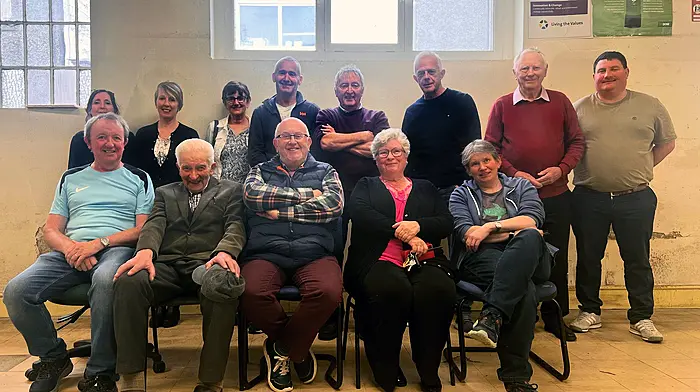This article originally appeared in our Autumn 2023 Property West Cork supplement – read the full supplement by visiting southernstar.ie/epaper
A recent graduate herself, Eimear O’Dwyer has some words of encouragement and advice for anyone embarking on this stage of their journey through education.
IT is very normal to feel overwhelmed following your Leaving Cert results, with the search for accommodation and several big choices coming all at once. But don’t panic – here are a few snippets of advice that might help to calm your mind and ease your transition into the next chapter of your life.
Academic advice

The transition from secondary school learning to the university system can feel very daunting. The academic experience can feel alien at the start – particularly when you are used to teacher-led learning. While resources are available to help you along the way – you need to prioritise time for your studies – and this is solely your responsibility.
There are apps such as Canvas or Blackboard where all of your modules (subjects) are listed and where you can access notes and readings. The apps also notify you of assignments, lectures and upcoming exams.
This sounds complicated now, and at the start it can be tricky to navigate – but it gets easier over time and becomes a useful resource to keep on top of work. Remember that you can always ask your lecturers and tutors questions via email or after classes and tutorials if you are unsure of anything.
Little things like printing your timetable, taking a walk around campus before the term starts to get to know it’s layout, and reading about each module you are studying can help you to feel more settled and in control.
I would also advise you to attend as many lectures as possible in the first week – even in the modules you decide not to take. Each semester there was at least one subject I swapped for a different one – you may realise the content of the subject is not what you expected, or that you prefer another module, or perhaps the teaching style doesn’t compliment your way of learning.
Immersing yourself in the academic side of college requires an open mind – think of it as an opportunity to understand your strengths and weaknesses and to discover new ways of learning.
Making friends
I must admit that lecture halls can be intimidating. When you are used to classroom-based learning and seeing the same people every day – making friends, particularly in larger courses that can have three or four hundred students can feel like a big challenge.
Before you start your course, at the end of the summer there will be an orientation day – with activities, games and group tours, this is a great way to get to know some of the people who are in your course. Having a few familiar faces in the lecture hall during your first week can calm your nerves!
Another great way to make friends is through cultivating your hobbies and passions. If you enjoy sports – you will have the opportunity to join many different clubs and teams with a diverse range of activities to choose from.
There is also an abundance of societies that run art classes, music groups, book clubs and offer many other free opportunities to explore different extra-curricular activities. Balance is key – as a student you are juggling study and other commitments – be patient with yourself and make sure you have time to unwind from the chaos of deadlines and due dates.
Wellbeing

Moving out of home is a massive change which can be anxiety-inducing. Living with new people, socialising, and keeping on top of your studies can feel tricky to manage at times.
However, there are many supports offered in college – including free counselling services, career guidance and academic supports. Remember that these services are there to support you throughout your college experience, so don’t be afraid to avail of them.
Looking after yourself will improve every area of your life. Taking time for your hobbies, and for rest, will help you to unwind from study. Eating well, exercising and rest/recreation are all cornerstones of both mental and physical wellbeing.
Why not avail of free gym or yoga classes (in some colleges), go for a walk after classes or join a sport – making time for movement can help to calm a busy mind.
Eating proper meals can also bolster your immune system and boost your concentration in college. I also found doing a weekly shop rather than day-to-day purchases helped my
pocket and my meal prep.
Getting a whiteboard or sheet of paper and making a rough plan of your meals for the week can ensure you’re getting enough nutrition and can help you to feel more organised.
Do leave room for spontaneity as well – eating intuitively and enjoying meals with your friends and housemates is important too!
Budgeting

College is an expensive time – the cost of accommodation, fees and day-to-day living costs can put financial pressure on students and their families.
In terms of accommodation and fees – looking into supports such as SUSI can help to take some away some of the financial burden. Having a part-time job for weekends or days off (depending on your academic schedule), can also be very helpful and allows you the financial independence of paying for your groceries, college supplies and socialising, for instance.
As I mentioned before, availing of free activities, clubs and societies and seeing what discounts your student card gets you will also reduce some of your costs.
If you don’t already have a TFI student leap card – please get one – this will reduce your bus fares greatly and if you live a bit away from college this will make a big difference day-to-day.
Living with new people

Moving from your family home, into accommodation with new people is a big change. It is important to take time for yourself, to ensure you have enough space in shared communal reas for your belongings and to split the cleaning. Living with people and finding a system that works for everyone is a great learning experience. Be patient with new people and keep an open mind – everyone has different ways of doing things! Often housemates can become your friends as you all navigate the new challenge of living out of home. However, if you are finding it difficult to live with people – make sure to immerse yourself in your hobbies and make time for friends outside of your accommodation.
Socialising and safety

Obviously a big part of the college experience is socialising and making new friends. Going out at night and having a laugh and a dance with your friends can be great fun and should be enjoyed. However, this newfound freedom needs to be experienced safely. Always go out with people you trust, drink responsibly, keep your friends close by and never travel home alone. While this may seem like common sense – with the excitement of being able to go out whenever you want – you need to remember to be aware and cautious.
It will be okay
As a very indecisive person myself, I know how stressful this time in life can be – with all the decisions you have to make in quick succession and not knowing whether you will even enjoy your course. I think it is important to keep in mind that every experience is different. If you are unhappy or overwhelmed with your chosen course – changing your modules or your degree can be done for free in the first couple of weeks – so remember you are not stuck! Be patient with yourself and remember this time is an exciting opportunity to understand yourself better and to immerse yourself in new things. Enjoy it!
• About the author
West Cork native Eimear O’Dwyer graduated from University College Galway in 2022 with a degree in Commerce and is now finishing her Masters in Journalism while also writing for The Southern Star.








